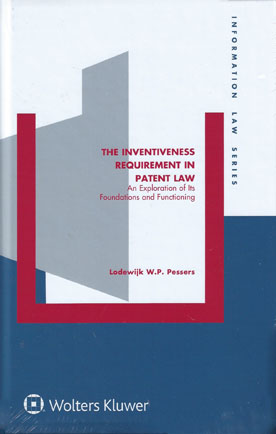
The Inventiveness Requirement in Patent Law provides a broad and historical perspective on the inventiveness concept in patent law.
This groundbreaking work lays a very thorough conceptual basis for further and more in-depth discussions on current standards of inventiveness. Although the pivotal role of the inventiveness requirement in patent law is broadly accepted, it has long remained an ill-defined concept. The question that is often raised in current debates is whether the requirement is capable of functioning as an adequate ‘gate-keeper’.
Using a methodology guided by geography and chronology, the author weaves together developments in numerous countries – focusing primarily on the United States, the United Kingdom, Germany, and the Netherlands – into a full-scale analysis of the inventiveness concept.
What’s in this book:-
Among the questions raised and examined are the following:-
For reasons of structure and overview, the book is divided into two parts. The first part describes the evolution of inventiveness requirements in its first three phases: medieval, mercantilist and pre-modern. The second part is dedicated to the modern phase and pays particular attention to two different ‘schools of thought’ that developed in the 19th century and which continue to be relevant for the doctrine’s direction, even today.
How will this help you:
This book provides crucially important fundamental commentary for lawyers, jurists, and scholars coming to grips with a hugely complex legal phenomenon: the dramatic growth, worldwide, in recent years of patents as instruments for the protection of industrial property. This book discusses the legislative and jurisprudential developments, as well as the extra-legal aspects – social, economic, political, and administrative – of the inventiveness in patent law. This excellent analysis is particularly welcome in these times of intensifying scrutiny of patent law and is sure to rapidly become a cornerstone resource for intellectual property lawyers, patent officers, in-house counsel in multinational manufacturing companies, and other interested practitioners.